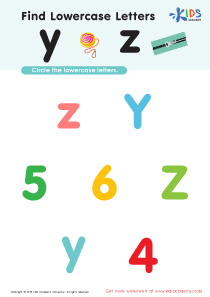Alphabet Recognition Normal Uppercase Letters Worksheets for Ages 6-8
10 filtered results
-
From - To
Enhance your child’s reading skills with our "Alphabet Recognition Normal Uppercase Letters Worksheets" designed for ages 6-8. These worksheets make learning fun and engaging, helping young learners identify and write uppercase letters effortlessly. Each worksheet combines vivid illustrations, traceable letters, and simple activities to reinforce letter recognition and phonics. Perfect for both classroom settings and at-home practice, our activities foster confidence and early reading ability. With structured, step-by-step guidance, these worksheets lay a solid foundation for literacy success. Explore future excellence in reading with Kids Academy’s expertly crafted uppercase alphabet worksheets!
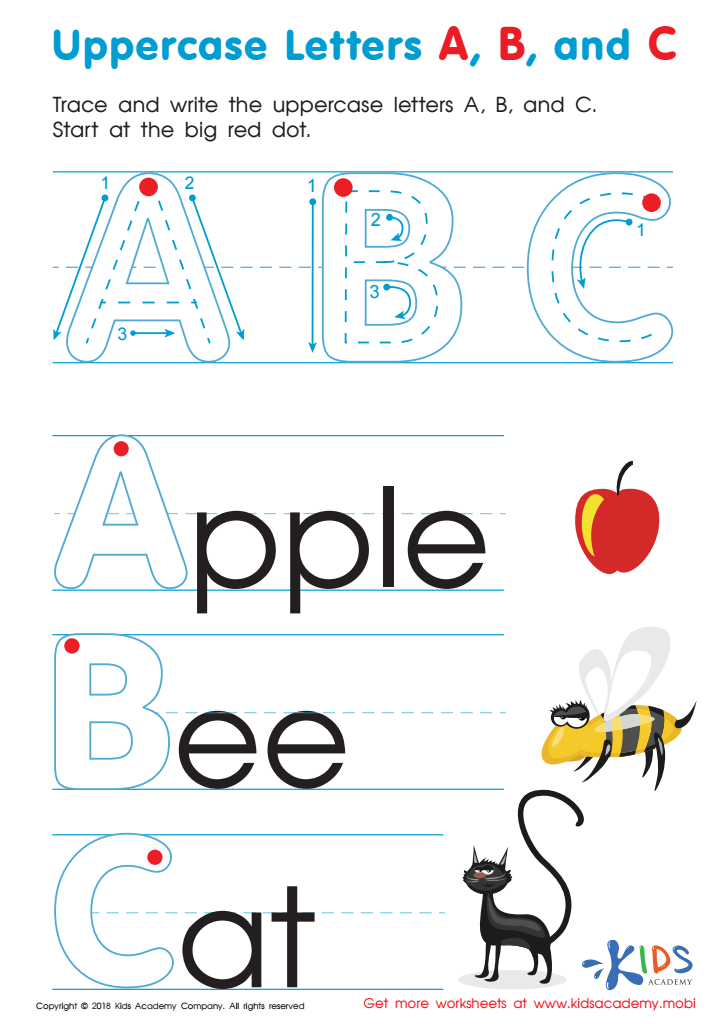

Uppercase Letters A, B, and C Worksheet
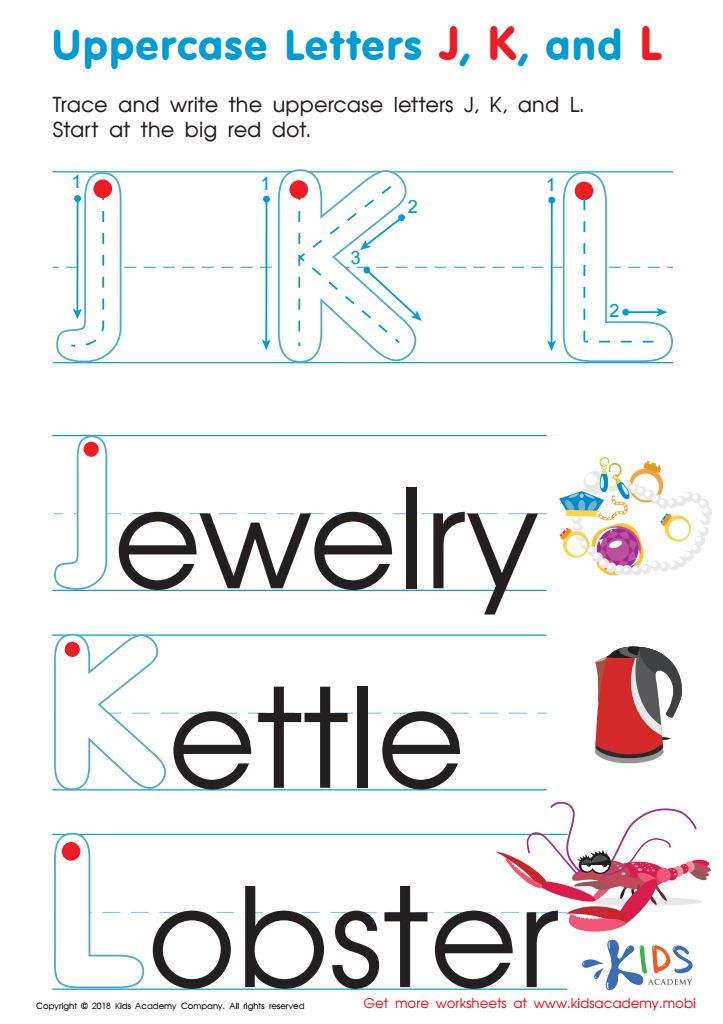

Uppercase Letters J, K, and L Worksheet
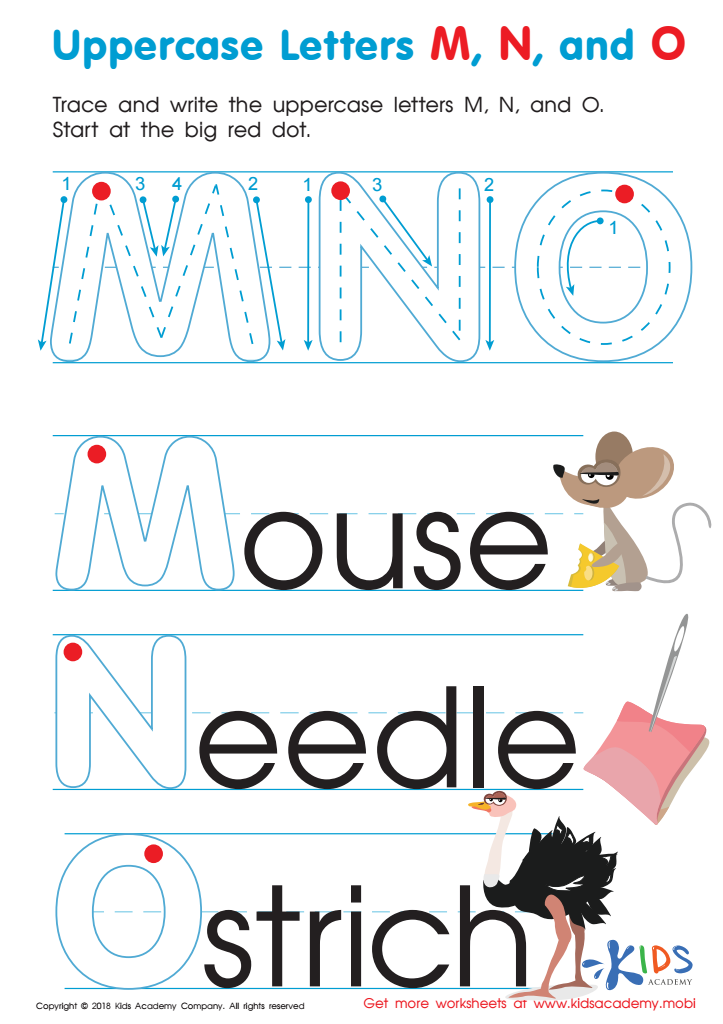

Uppercase Letters M, N, and O Worksheet
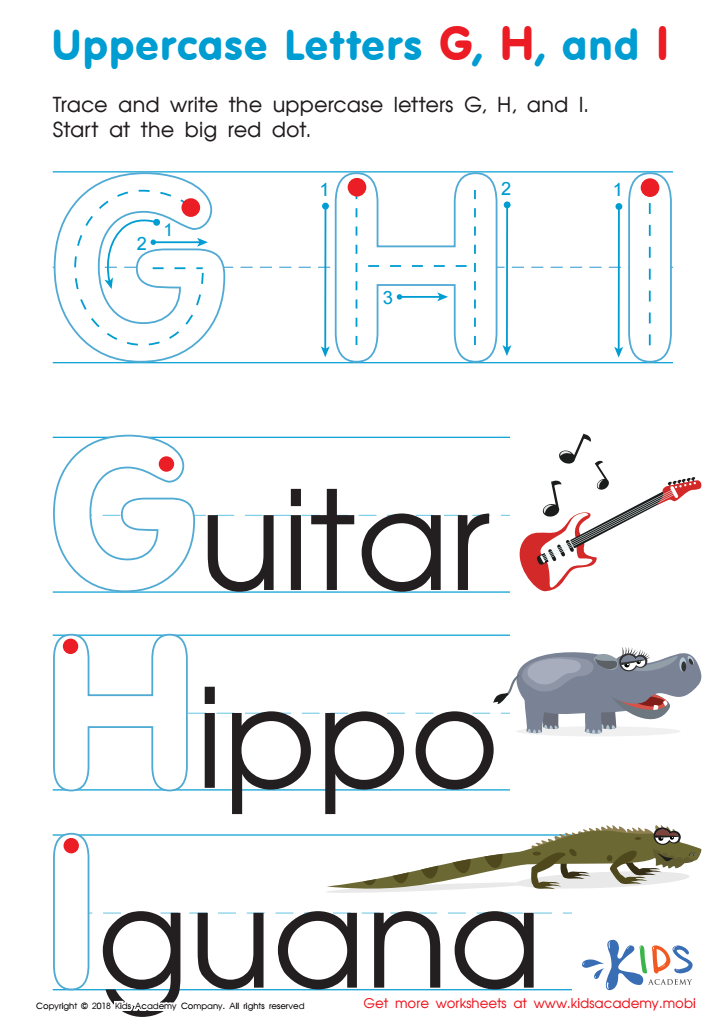

Uppercase Letters G, H, and I Worksheet
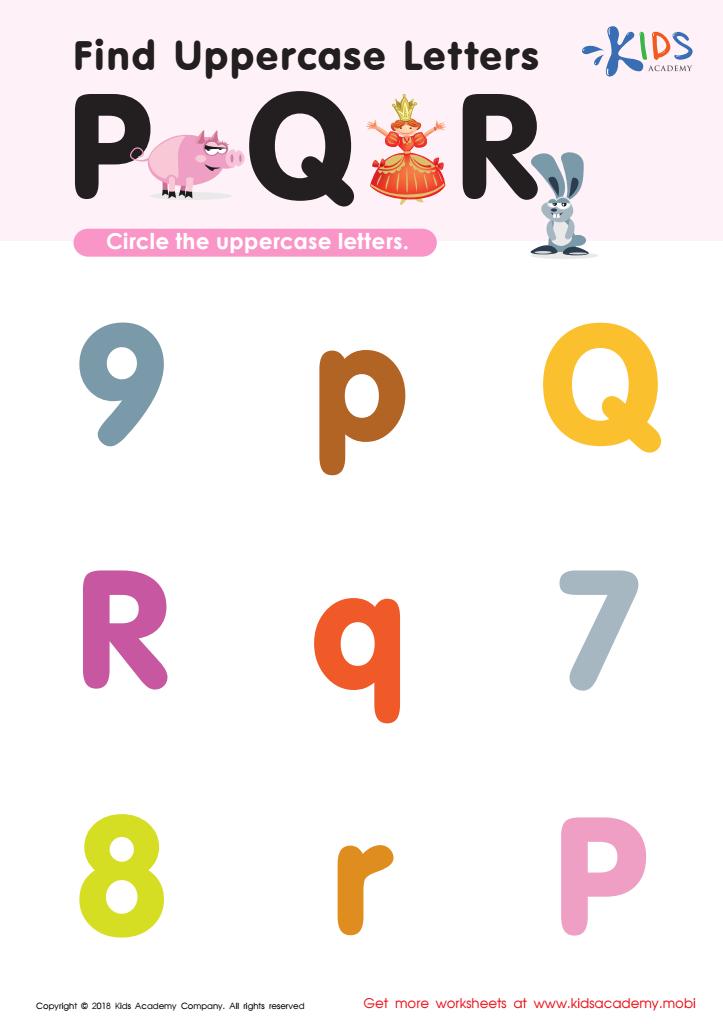

Find Uppercase Letters P, Q, and R Worksheet
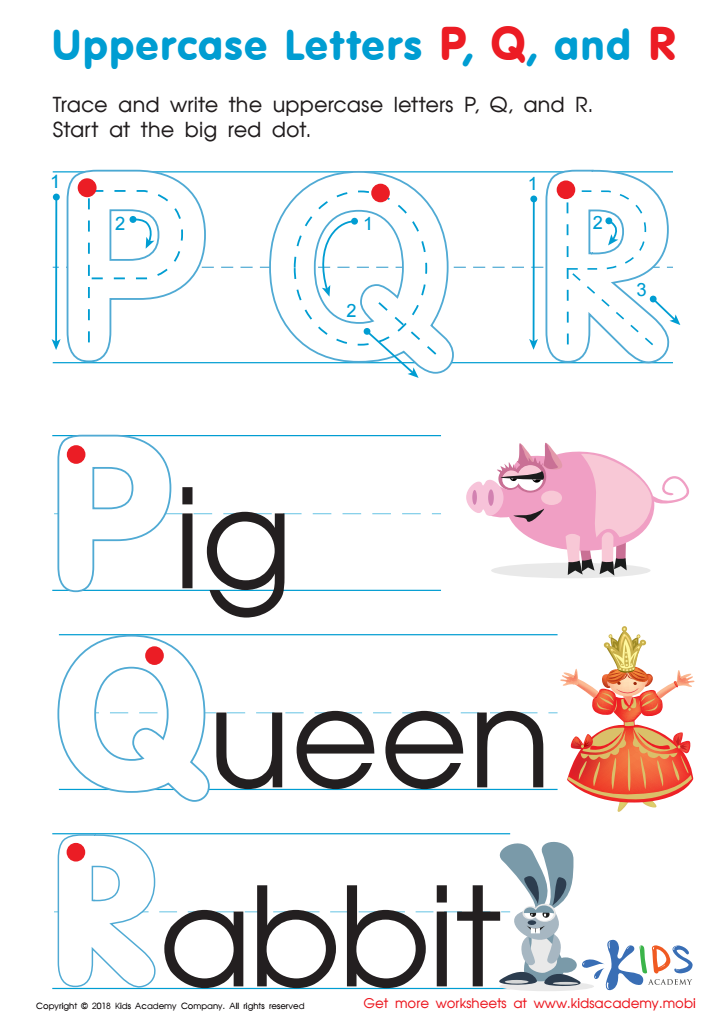

Uppercase Letters P, Q, and R Worksheet
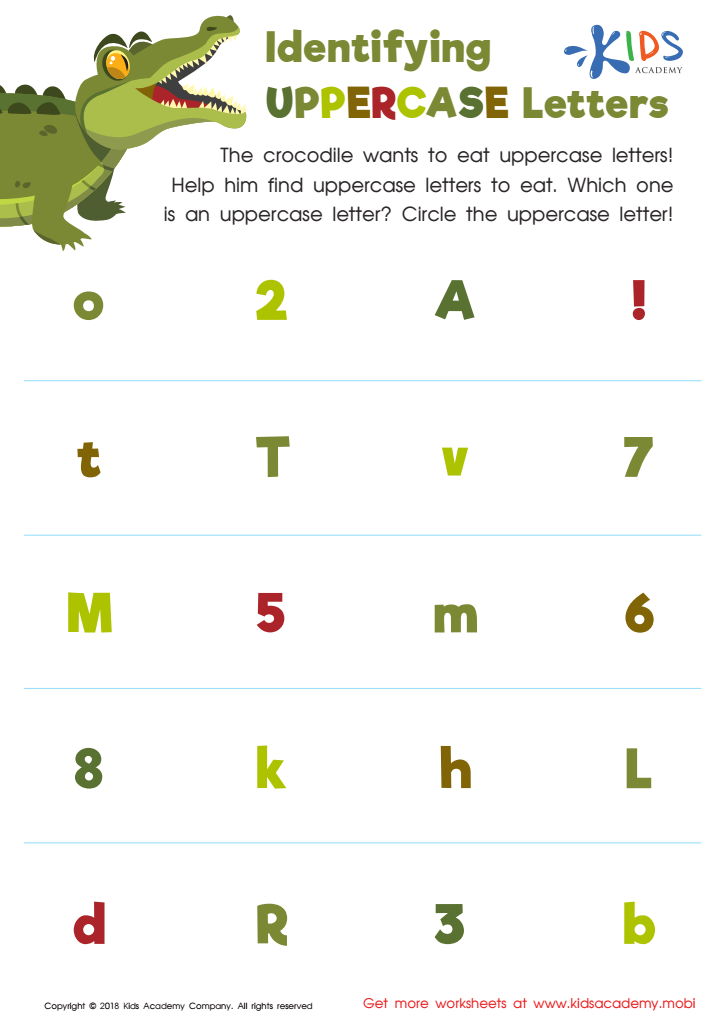

Identifying Uppercase Letters Worksheet
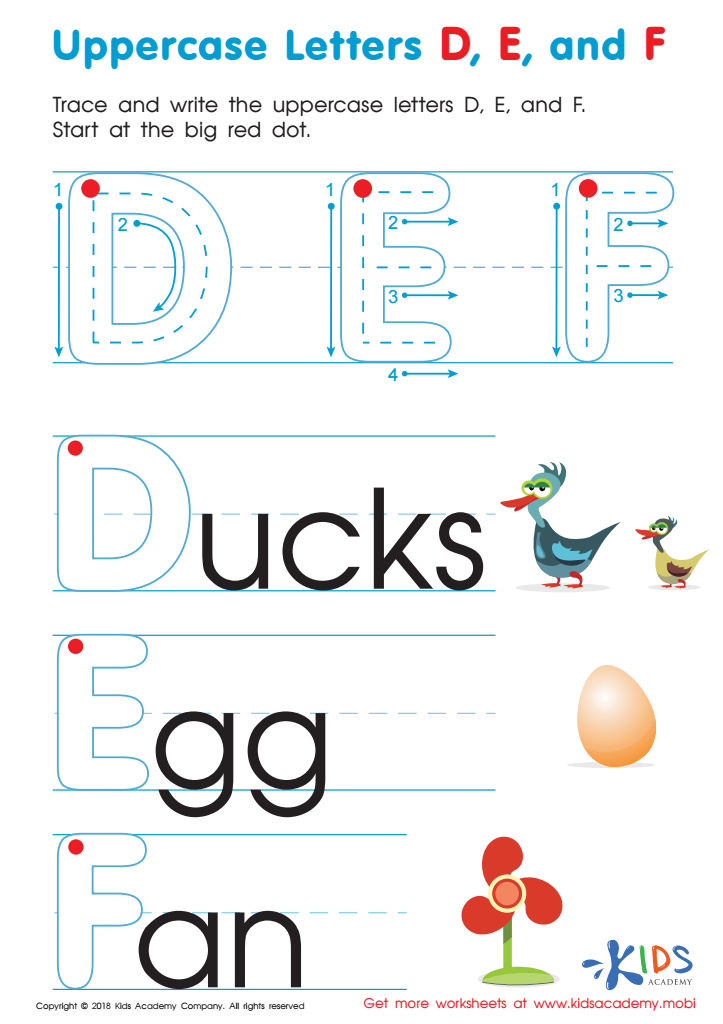

Uppercase Letters D, E, and F Worksheet
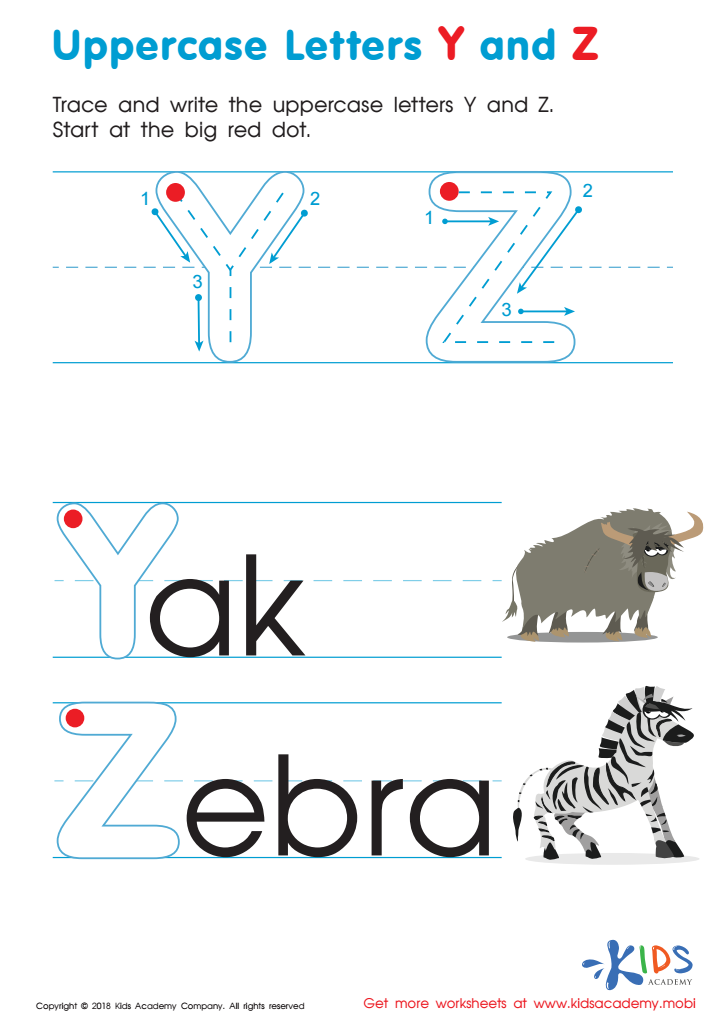

Uppercase Letters Y Z Worksheet
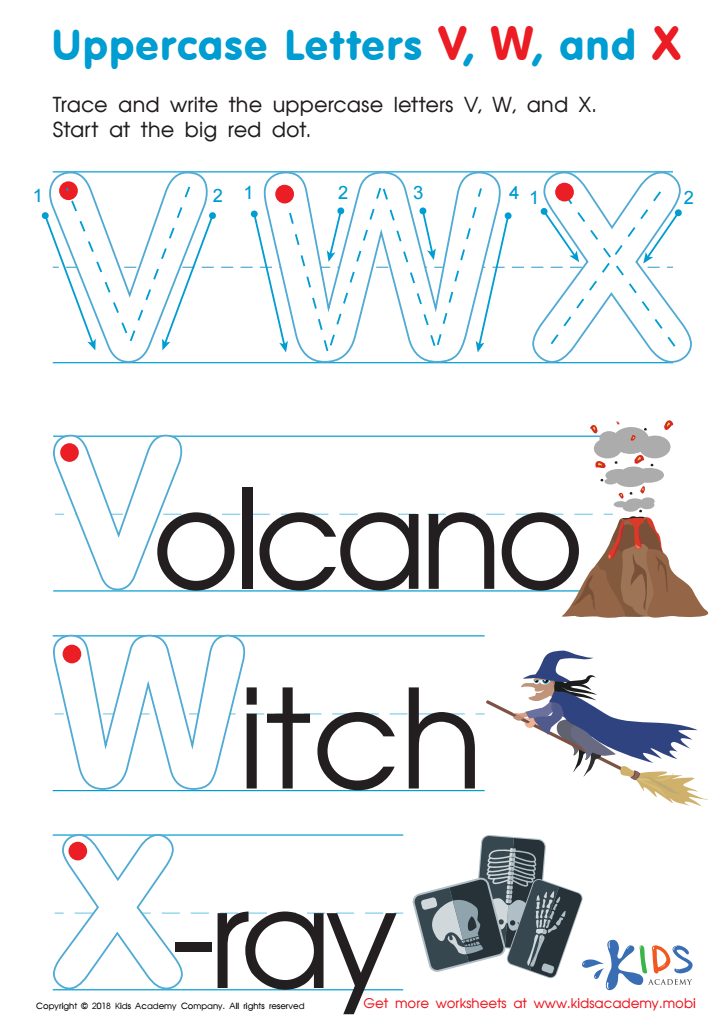

Uppercase Letters V, W, and X Worksheet
Alphabet recognition, particularly the ability to identify normal uppercase letters, is fundamental for children aged 6-8 as it serves as one of the primary building blocks for reading and writing. For parents and teachers, emphasizing alphabet recognition is crucial because it directly impacts a child’s literacy development. During the ages of 6-8, the brain is especially receptive to learning linguistic skills, making it an optimal time to solidify basic letter recognition.
When children can confidently recognize uppercase letters, they can better decode words when reading and form letters accurately when writing. This fluency aids in building strong reading foundations, spelling accuracy, and overall language comprehension.
Moreover, mastery of uppercase letters also supports cognitive skills such as memory and pattern recognition, contributing to more effective learning in other academic areas. Recognizing uppercase letters helps in differentiating between similar-looking lowercase alphabets and reduces confusion, thereby boosting a child’s confidence and interest in reading and writing activities.
From a social-emotional perspective, developing literacy skills is linked to higher self-esteem and better communication abilities. Hence, prioritizing alphabet recognition in early elementary years sets the stage for lifelong learning and academic success, making it a critical focus for parents and teachers alike.
 Assign to My Students
Assign to My Students









